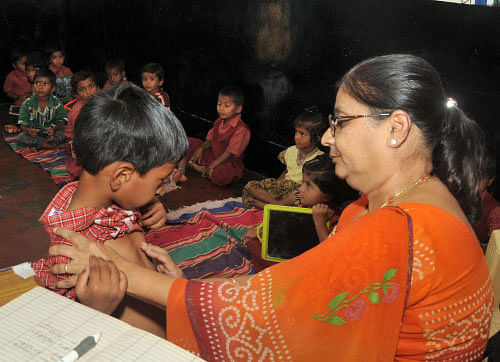
A mysterious, dengue-like disease is spreading in Bangalore. The still unidentified ailment is affecting many children, triggering a sharp fall in blood platelet count, multiple organ failure, and eventual death.
At least five deaths have been reported from a prominent city hospital alone with more feared in other medical set-ups, both private and government.
Based on the symptoms — high fever, vomiting and low platelet count—many doctors have dubbed it “dengue shock syndrome,” a serious form of dengue. But they are not so sure, and want the government laboratories to label the disease. Clearly, the testing has to be comprehensive and immediate.
Doctors are more worried because patients are mostly children and adolescents. Dr Preeti Galgali, a consultant paediatrician and central executive board member for the Indian Academy of Paediatricians, told Deccan Herald: “There are three types of dengue—the dengue fever, the haemorrhagic dengue and the dengue shock. The first one is the most common one and the latter two the serious forms.”
The serious ones could eventually lead to death. “In these forms, there is leakage of blood from capillaries due to which there is fall in blood pressure. And when the blood pressure goes so low that it cannot sustain life, the body collapses,” explained Dr Galgali.
Manipal Hospitals director Sudarshan Ballal said: “While it is for the government agencies to decide whether it is dengue, the symptoms that we are seeing are that of dengue shock syndrome. The blood platelet count of the patient goes down drastically and leads to circulatory collapse. One by one all the organs stop functioning and this eventually leads to death of the patient.”
Although similar cases were reported last year also, the numbers were small. “We are seeing a lot many patients coming in this year and most of them are children,” said Dr Ballal.
Five deaths were reported so far from one hospital. But there are no clear, centralised data on the state-wide or city-specific fatality numbers. It is learnt that government hospitals such as Bowring and Lady Curzon hospital, too, have reported deaths. “There are many such patients coming in. The symptoms are all that like of dengue and result generally in death,” confirmed Dr S Rajanna, resident medical officer of Bowring Hospital. Doctors at MS Ramaiah Hospital also confirmed such cases. The number of child patients was high.
With no cure in sight, doctors lay stress on close monitoring of blood platelets count as the only way to detect the syndrome. “The only solution is early detection and taking steps to maintain the vital statistics like platelets count, to prevent a drop in the number. Also a fully equipped intensive care unit can help the patient,” said Dr Ballal.
“The normal platelet count is 1.5 to 4.5 lakh per micro litre of blood. If the platelet count starts hovering below one lakh, then monitoring needs to start. There is also a test called NS1 Antigen Test by which we can determine it to some extent. Early detection and awareness are the two key points,” said Dr Preeti.
Symptoms Signs parents need to look for
-High fever for more han a week
- Continuous vomiting
- Dizziness
- Lots of irritation when the child is down with fever. It may not be able to express weakness or dizziness.
- Continuous vomiting which can lead to shock.
- Low platelet count when admitted to hospital